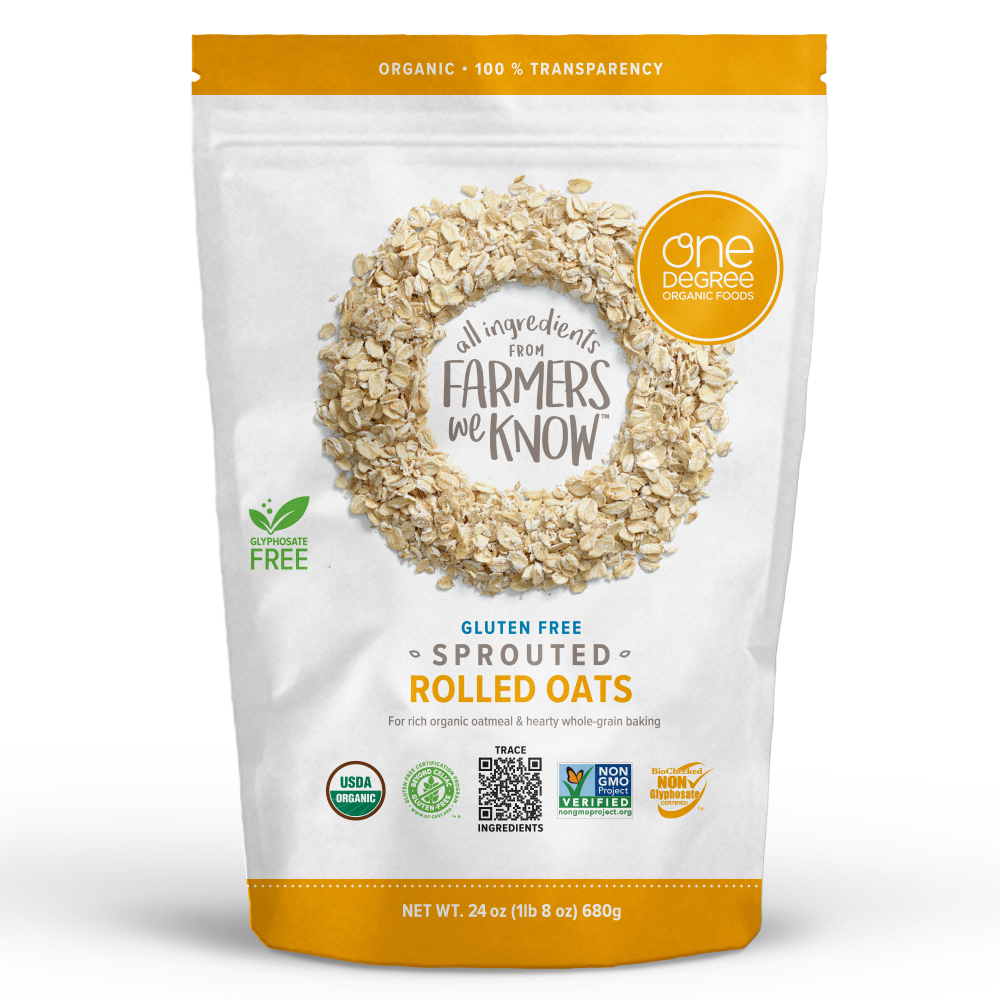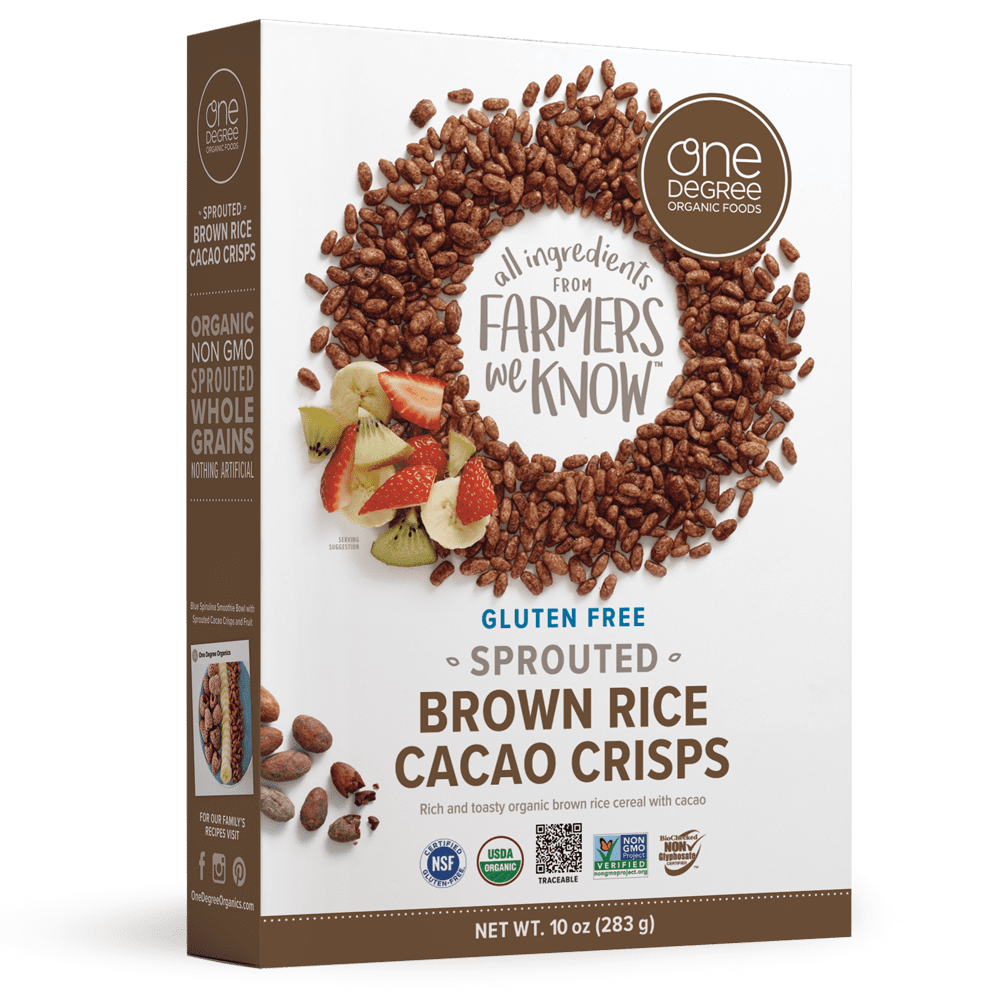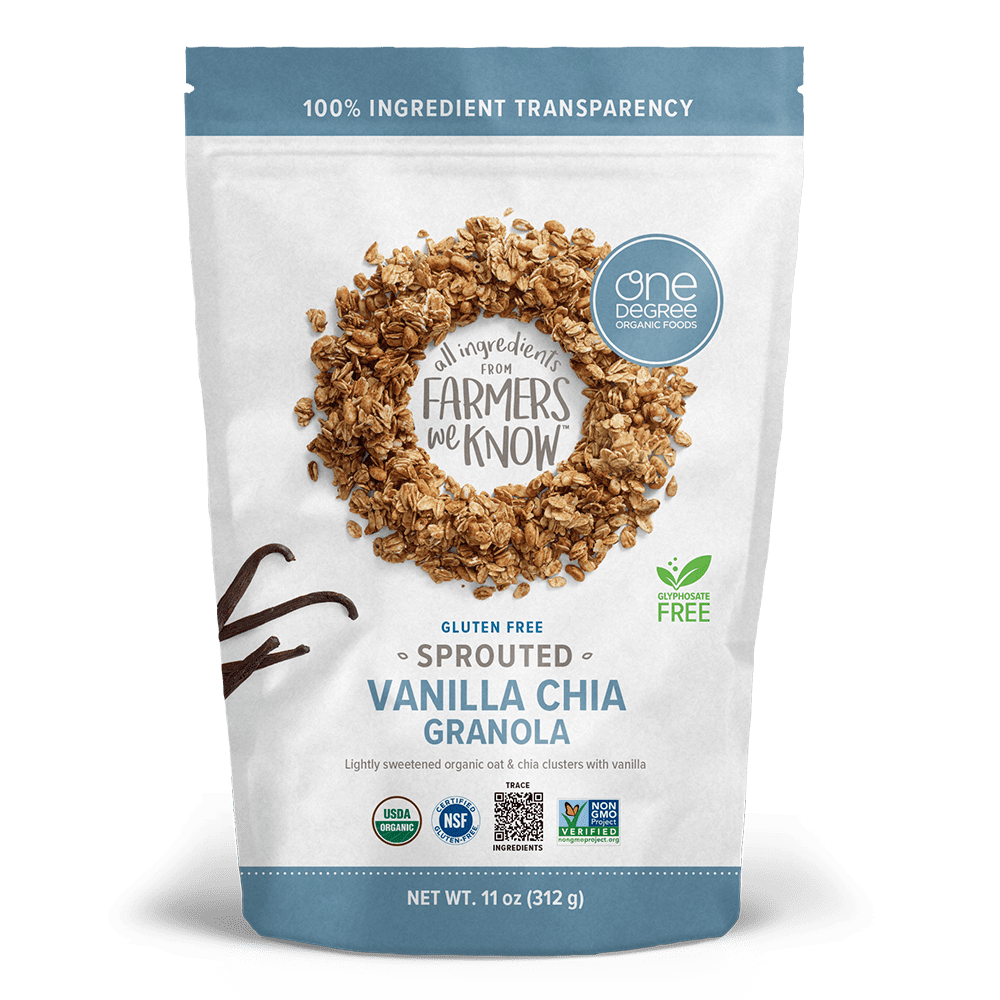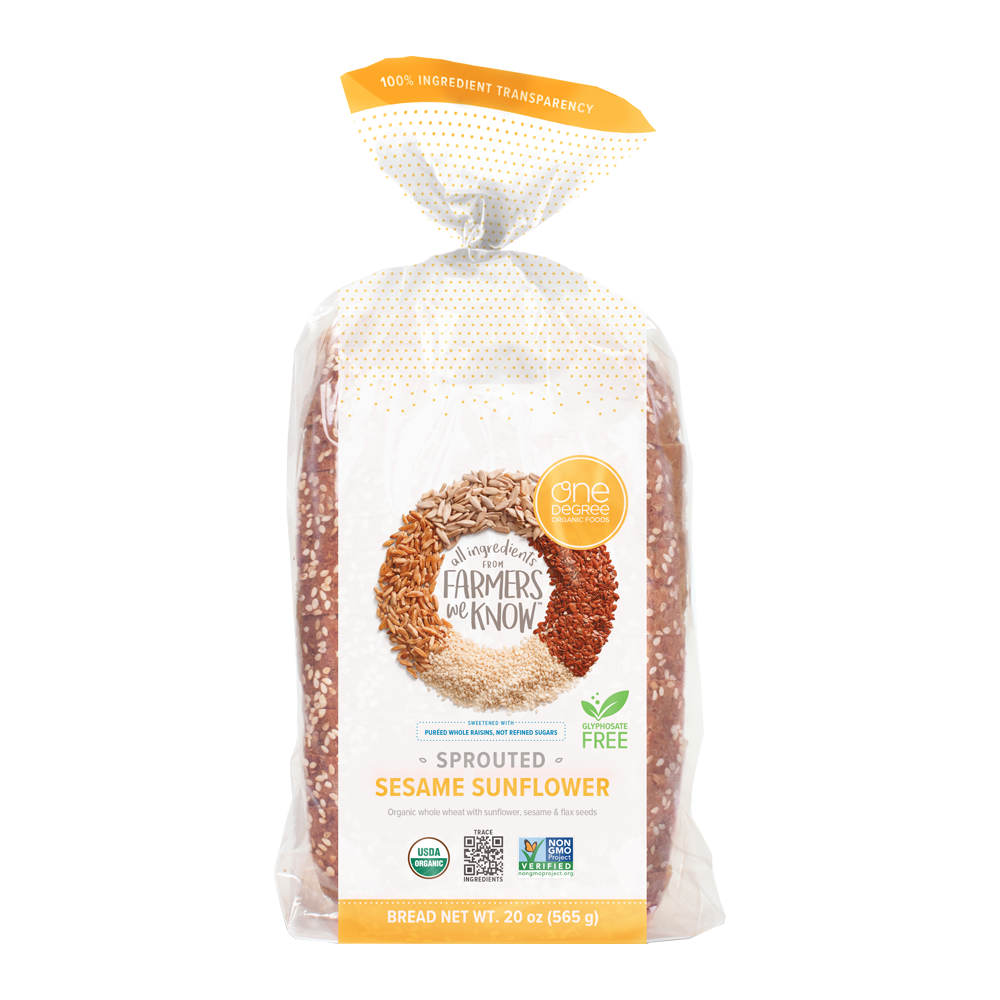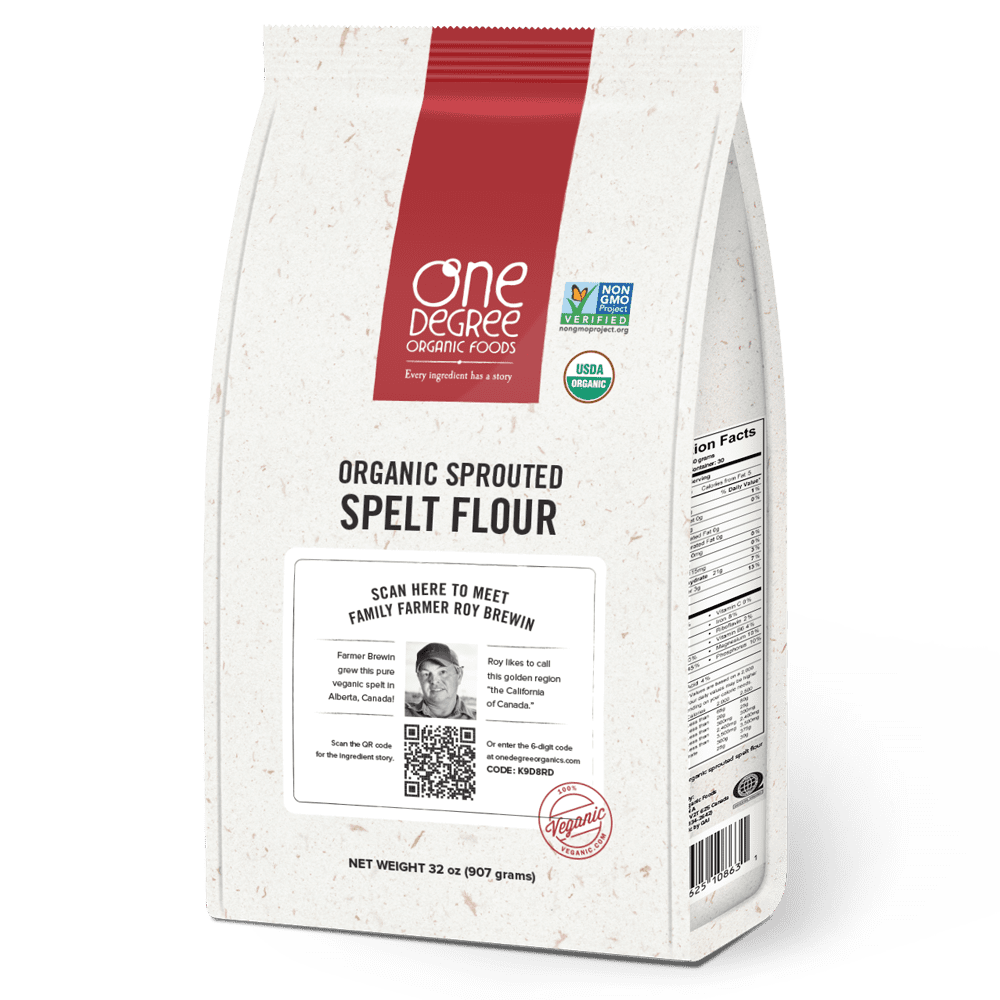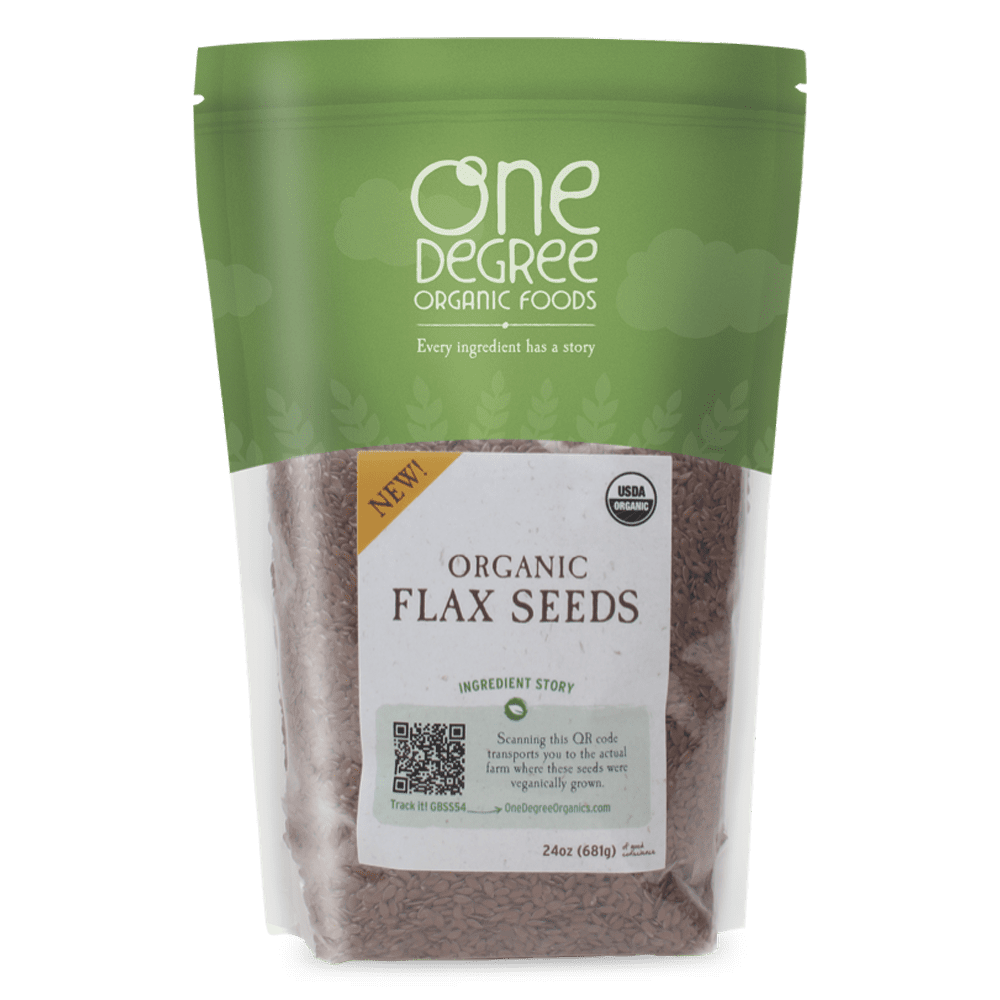Raisins
Three Sisters Grapes
One Degree grains have a natural sweetness that isn’t entirely the result of their sunny dispositions.
The grains we use to make our breads, cereals and flour are sprouted, and that means nature has added its own spoonfuls of sweetness. When a grain begins to sprout, the plant releases natural sugars to sustain it during this period of active growth. At the same time, the plant is also releasing enzymes that simplify compounds (making the grain more easily digestible), along with a burst of nutrients and natural flavor.
Sometimes, though, the recipe calls for an extra dash of sweetness, and that’s how we found Natalie Soghomonian, manager of an organic vineyard just south of Fresno, California. Natalie is a third generation farmer and, as the middle daughter of owners Joe and Johnni Soghomonian, is part inspiration for the farm’s famous Three Sisters label.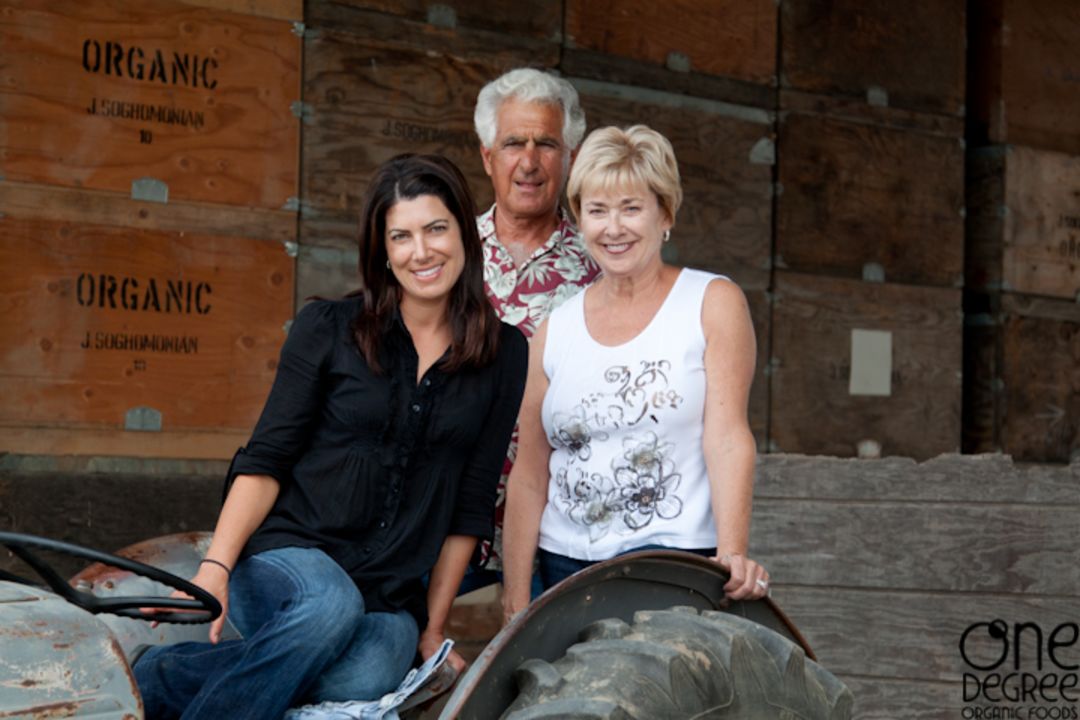
The Soghomonian farm grows a wide range of flavorful grapes. The family also reserves a portion of its acreage for the production of raisins, made from plump fresh grapes grown veganically. Based on the safe growing practices on the farm, the integrity of the family, and the nearly unimaginable flavor of the raisins, One Degree has chosen this select ingredient to sweeten a variety of our products.
When he was in his early 20s, Joe Soghomonian took over the farm from his father, an immigrant from Armenia who had seen promise in this open land, a place to cultivate prosperity and happiness for his family. Concern for the family was a prime reason Joe decided 30 years ago to become one of the first farmers in this corner of the Central Valley to become organic.
“Once you go through there and spray, you can hear a pin drop,” Joe remembers. He knew that kind of silent spring was not healthy for his daughters, who loved to play in the fields.
For Natalie, working in the fields was at least as much fun as playing there. As a child, she never missed a chance to wake up early and help her father tend the vineyards and groves. She has always wanted to be a farmer. In college, classmates gave her the nickname “farm chick,” a moniker that’s made its way onto the license plate of her pickup truck. Every day she tours the fields, often riding an old bike past rows of purple-dappled vines.
The vineyard is an idyllic place. That’s especially true in the spring when bright red poppies bloom amid the vines and the fields are adorned with the vivid stripes of cover crops— flowers, clover and other plants which build nutrients in the soil. The cover crops are key to the success of veganic cultivation of grapes, and flowers play an important role in attracting beneficial types of insects that keep destructive bugs on vine-tasting tours at bay.
Looking out on this beautiful landscape, with its gracefully tangled vines, stately walnut trees and elegantly designed buildings, it’s obvious why Natalie is so devoted to this land and why she takes so much pride in the fruit of her family’s labors. “My organic raisins have better quality than the other raisins that you get in the store because of the integrity and the patience that goes into growing that product,” she says.
The grapes destined to become raisins are hand-picked, because machinery can “juice up the grape” and increase the likelihood of mold, she adds. It’s important to control moisture later, too, as the grapes make the flavorful transition to raisins. “You need to move the trays around to make sure they’re getting air and heat in there. I’m out there every hour checking.”
Natalie doesn’t believe in shortcuts, whether it’s the allure of mass-production or the false promise of genetically modified plant varieties. Quality over quantity is a core principle. And when it comes to planting new vines, taste is paramount. “There’s no flavor in a lot of the new varieties,” she says. “The quality’s not there.” And there’s often an absence of the full range of nutrients, she believes.
As part of her commitment to quality, Natalie has made it a priority to sell raisins directly to consumers and organic food companies, rather than to packers. “Packers mix it a lot, you don’t know where it goes. They will often mix it with lower quality raisins. You don’t know where your raisins go, the buyers don’t know where the raisin is coming from.”
Her perspective on quality and transparency is a natural fit for One Degree. “When you purchase my raisins I know exactly which block they came from,” she says. Natalie is excited about the fact that consumers can scan the QR code on a One Degree package and see a video about her farm, featuring her own description of how, when and where the crop was grown. “That’s really great; I think that’s beautiful,” she told us. “I wish everything had that. That’s what I’m about too.”
We’re confident that our customers are going to enjoy getting to know Natalie and her irresistible raisins. And we’re gratified to know that the truth, transparency and sweetness of our veganic loaves are on the vine, in rows tapering through a rich organic landscape, somewhere south of Fresno.
— Charlie Dodge
